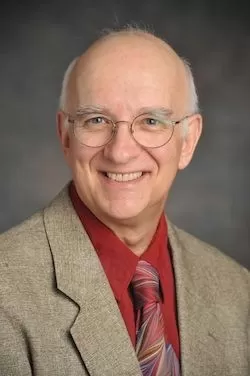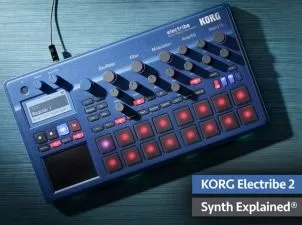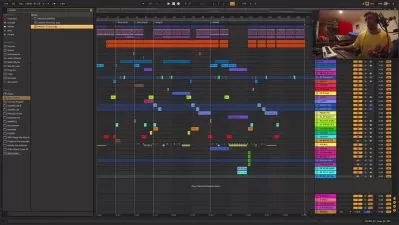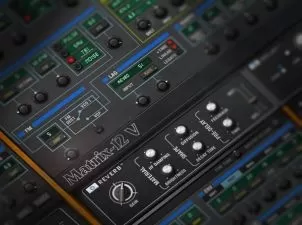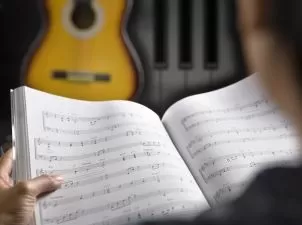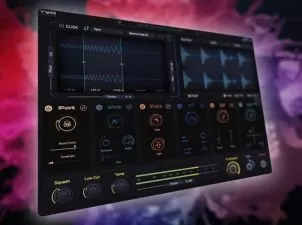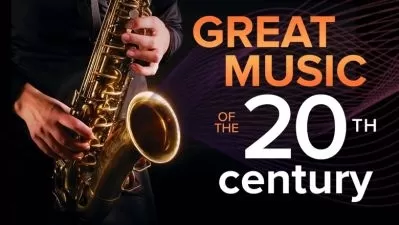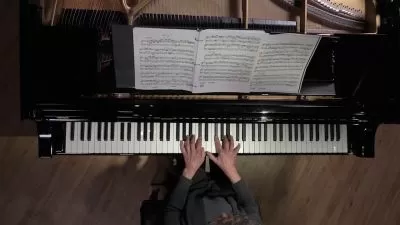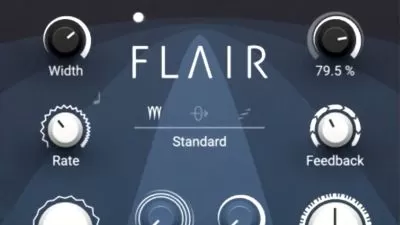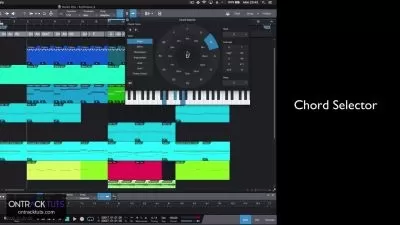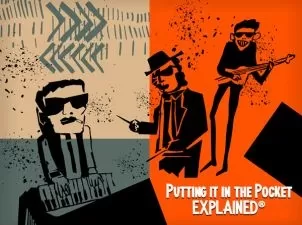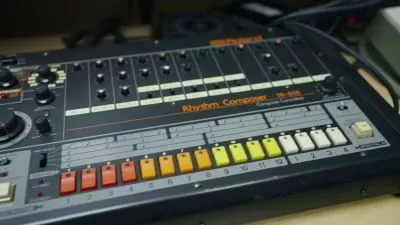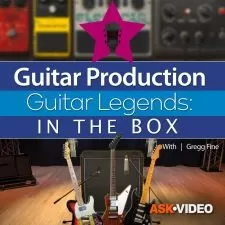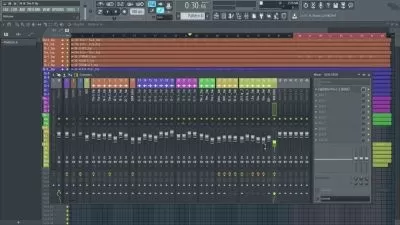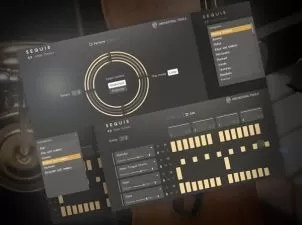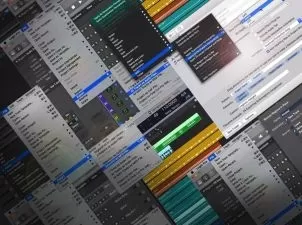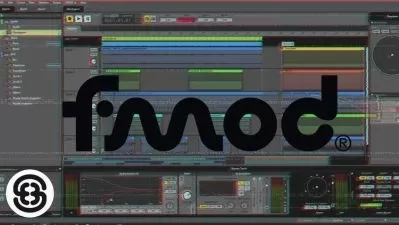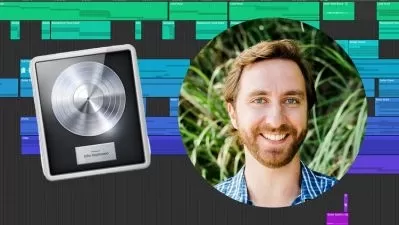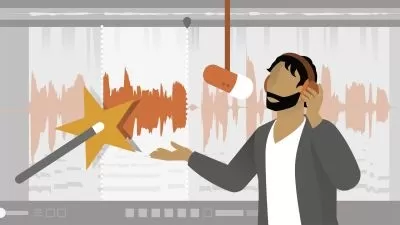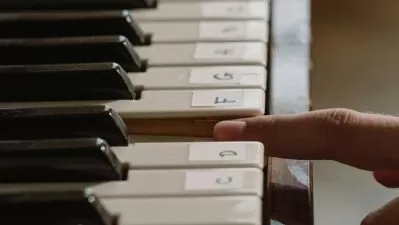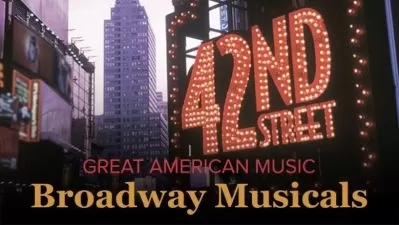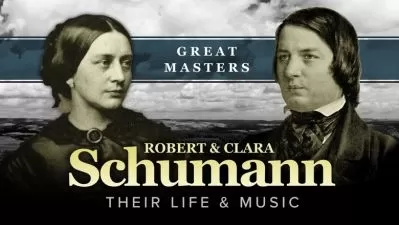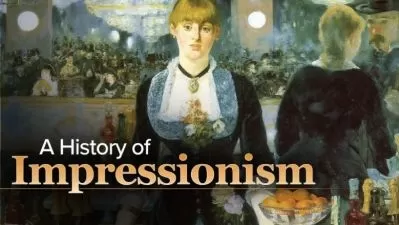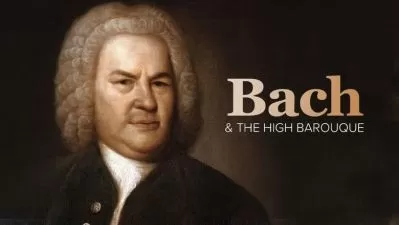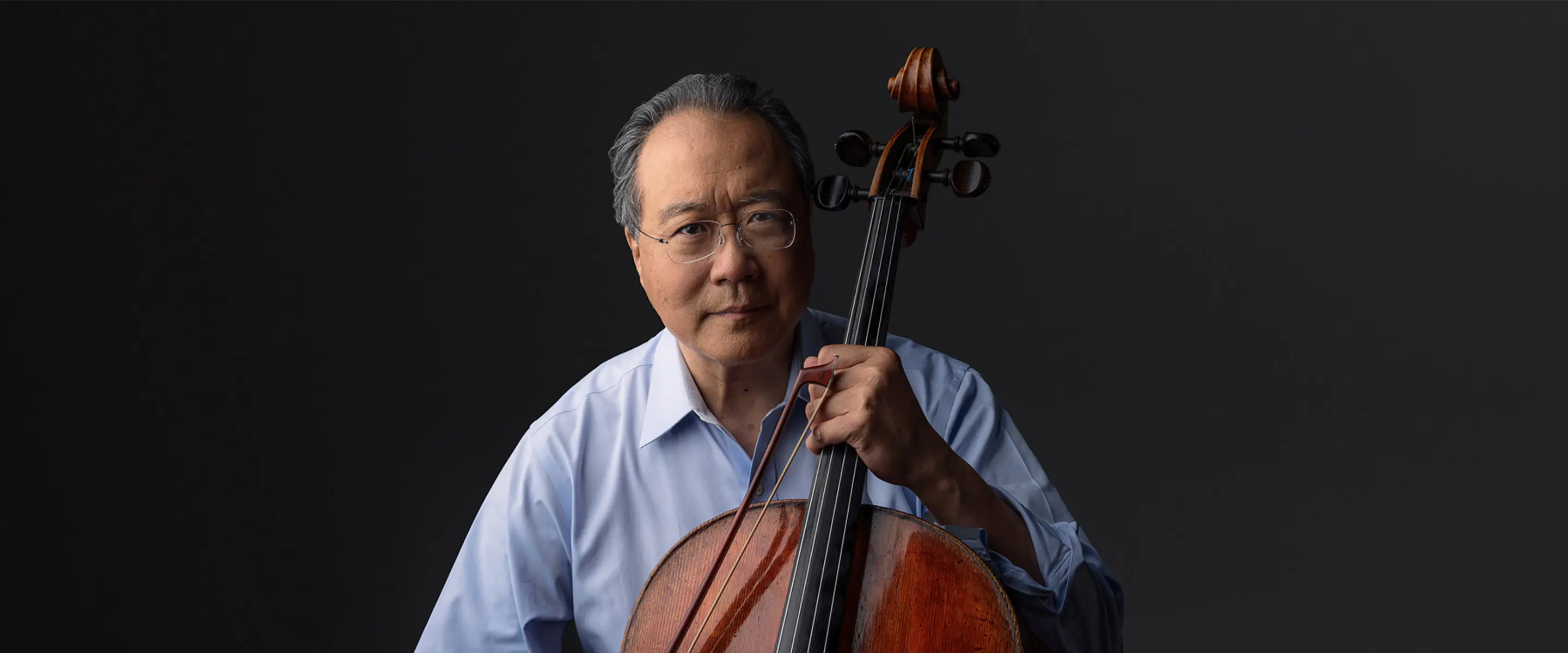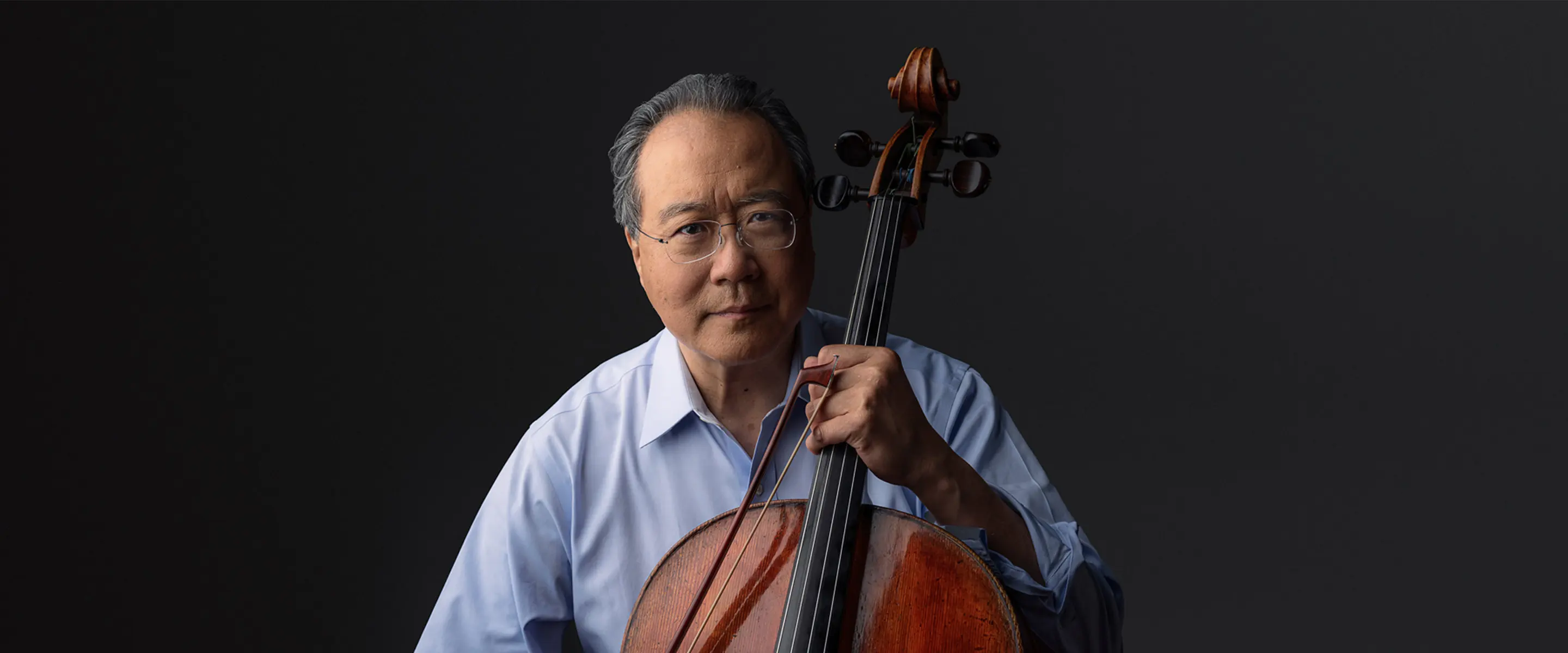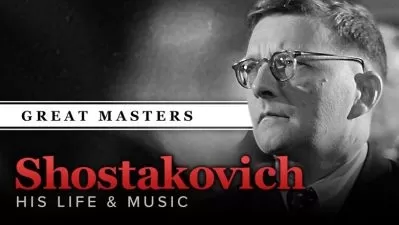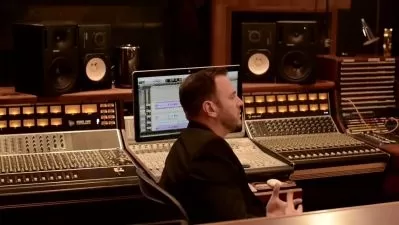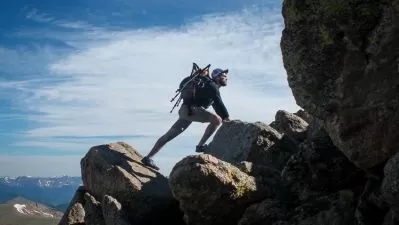America's Musical Heritage
Anthony Seeger
5:56:53
Description
Hymns, spirituals, protest songs, campaign themes—music has always played a powerful role in American life. And befitting a country so diverse, American music is defined, above all else, by a creative mixing of styles and instruments, and a constant inventiveness.
From vaudeville and jazz to country music and blues, hearing the sounds of the American spirit is a truly unique way to appreciate centuries of the nation’s history in all its complexity. American music, according to Professor Anthony Seeger, has been a part of the religions Americans practice, the wars they’ve fought, the regions in which they’ve lived and worked, and the communal celebrations they’ve enjoyed. It’s an eclectic soundtrack that taps into the core of what it means to live in America, and it’s a soundtrack to which musicians in the 21st century remain indebted.
In America’s Musical Heritage, learn how to hear the music of America with new ears. Produced in collaboration with Smithsonian Folkways Recordings—the Grammy Award-winning record label of the Smithsonian Institution featuring a vast treasury of American vernacular music—these 12 lectures explore more than 200 years of music that will reveal a different side of the American experience. Professor Seeger traces the origins of the American music industry; the impact of instruments like the piano and the banjo; and the myriad ways music has shaped American wars, dances, elections, and public demonstrations. You’ll also hear informative interviews and eclectic performances from scholar-musicians, and sample original recordings that reflect the incredible richness of the American musical experience. Through the music and stories of trailblazers like Scott Joplin, the Memphis Jug Band, Woody Guthrie, and many others, you’ll hear an unforgettable story of American cultural innovation.
Uncover the Power of American Music
At the heart of America’s Musical Heritage is the idea that music and society are constantly intertwined. Music in the United States has been shaped by centuries of human interaction and musical encounters, from the traditions of Indigenous peoples and the influence of European empires that first staked their claim on North America to political struggles for the rights of women, workers, and other disenfranchised groups.
Professor Seeger’s lectures uncover the power of music to teach us new insights into America’s past and present.
- Music and Colonialism: The territory we call the United States combined pre-existing musical heritages from both European and Indigenous communities, resulting in a tapestry of sound. For example, local music groups would play arrangements of European orchestral works such as Handel’s “Water Music”; the song “Farewell France” became an appropriate sentiment for residents of French Louisiana after Napoleon sold the region to the United States in 1803; and Indigenous peoples were often trained as musicians and composers in the large cathedrals of what is now Mexico.
- Music and War: Ever since the American Revolution, music has always been a part of military life—and civilian life, as well; some of the nation’s best-known songs emerged during armed conflicts. During the Civil War, songs were important to both sides. The minimum salary for field musicians in the Union army was around $17 per month (more than a private’s pay). And Southern states stressed the importance of music in trying to establish a new country, particularly through songs that included “I’m Going Home to Dixie,” “The Flag of Secession,” and “God Save the South.” Both sides sang “Home Sweet Home.”
- Music and Faith: Religious diversity in America produced numerous styles of singing and dancing that reflected not just major faiths but also the spiritual nature of specific regions and locales. Ring shouts were a specific type of folk spiritual in which worshippers moved around a ring, accompanied by singing, handclapping, and stamping. These ring shouts are still performed in some small rural churches in the South, as well as on the small islands along the coast between Charleston, South Carolina, and Savannah, Georgia.
- Music and Hope: It’s impossible to ignore the centuries of oppression and disenfranchisement that remain a part of the American story. Even still, music was often a source of hope and inspiration for minority groups. African-American religious music was a wellspring for music of political struggle in the United States. Certain gospel songs and spirituals like “Go Tell It on the Mountain” and “We Shall Not Be Moved” gradually transformed over time into anthems for legal and social change through lawful intervention.
Survey Unforgettable Styles and Songs
At its core, America’s Musical Heritage is a wonderful appreciation of how distinctly American styles of music came to life and captured the ears, hearts, and bodies of millions of listeners. Throughout Professor Seeger’s lectures, you’ll discover how music in America developed not in a linear fashion, but rather through the adoption and reinvention of earlier forms and regional genres.
Some of the many musical styles you’ll survey in this course include:
- Brass Bands, which in the post-Civil War years served as a badge of honor for towns and cities across the nation;
- Powwows, which were public music events held by the Indigenous peoples of the United States and Canada, and which could last anywhere from one day to an entire week;
- Country Music, whose performers often wear cowboy hats inspired by popular films featuring singing cowboys, sometimes called “horse operas”;
- Ragtime, which synthesized African syncopation with European classical structure and harmony, and which often included elements of marches and church hymns; and
- Jazz, which brought new opportunities, attention, and prestige to performers with its emphatic focus on musical improvisation and interpretation.
You’ll also learn the secret histories of songs you might be familiar with—as well as ones you’ve never heard before, including:
- “The President’s March,” initially written to honor President-elect George Washington in 1789 and reworked in 1789 into the song, “Hail, Columbia!,” which would become the informal national anthem of the United States for much of the 1800s;
- “Amazing Grace,” a powerful example of the sort of plain, direct hymns that tugged the hearts of Americans seeking spiritual guidance, and which became very popular in the closing years of the Second Great Awakening;
- “Bo Weevil,” a minstrel song by African-American musician Pink Anderson which served as a comic take on the impudence of an insect pest that damaged the lives of Southern cotton farmers; and
- “We Shall Overcome,” an anthem sometimes criticized for being too simple and optimistic, but which nevertheless became adopted around the world by disenfranchised groups.
New Musical Avenues to Explore
Every musical selection in America’s Musical Heritage comes from the collection of Smithsonian Folkways Recordings and includes the talent of well-known artists and lesser-known professionals alike. At the end of every lecture, you’ll find a list of music played during the lecture, as well as playlists of additional listening suggestions.
In nearly every lecture, Professor Seeger is joined by other musicians, scholars, and specialists who demonstrate musical instruments (such as the banjo and piano) and help further explain the richness of American musical genres.
“Your musical heritage is shaped by the music of the communities you identify with,” says Professor Seeger. “I hope you’ll come to appreciate your heritage—and that of others who live in the United States—more than ever before.”
With America’s Musical Heritage, Professor Seeger has crafted a rich and rewarding course that offers new ways for you to experience both music and American social history. You’ll discover new tunes to hum, new rhythms to tap your feet to, and new musical avenues to explore on your own.
More details
User Reviews
Rating
Hip Hop Music
Music Instruction
Music Theory
Music Improvisation
Music Production
Music Mixing
Music Composition
Music Recording
Electronic Music
Game Music
Reading Music
Ear Training
Music Appreciation
Music History
Classical Music
Playing Music by Ear
Music Business
Carnatic Music
Raga Music
Music Conducting
Music Marketing
Music Career
Music Licensing
Anthony Seeger
Instructor's CoursesAnthony Seeger is a Curator and Director Emeritus of Smithsonian Folkways Recordings. Additionally, he is a Distinguished Professor of Ethnomusicology Emeritus at the University of California, Los Angeles. Born into a musical family, he is also an anthropologist, ethnomusicologist, audiovisual archivist, record producer, and amateur musician. Professor Seeger received his BA in Social Relations from Harvard University and his MA and PhD in Anthropology from the University of Chicago.
Professor Seeger lived in Brazil for nearly 10 years and spent much of that time as a member of the Graduate Program in Social Anthropology in the Department of Anthropology at the National Museum in Rio de Janeiro. His anthropological research focused on the music and culture of the K?sêdjê people (formerly known as the Suyá) of Mato Grosso, Brazil. He also helped establish the Musicology/Ethnomusicology/Music Education MA program at the Brazilian Conservatory of Music.
Professor Seeger later returned to the US to serve as director of the Archives of Traditional Music at Indiana University Bloomington, where he also taught. He then moved to the Smithsonian Institution to assume the direction of the recently acquired Folkways Records and to become the first curator of the Smithsonian’s Folkways archival collection. He established the Smithsonian Folkways Recordings record label, where he was the executive producer for more than 250 CDs as well as a collaborator on DVDs and radio series. He was also the faculty director of the UCLA Ethnomusicology Archive.
Professor Seeger has been active in several professional organizations. He served as president of the Society for Ethnomusicology, president and secretary general of the International Council for Traditional Music, chair of the Research Archives Section of the International Association of Sound and Audiovisual Archives, and vice president of the Brazilian Association for Ethnomusicology. Professor Seeger was elected as a member of the American Academy of Arts and Sciences, and he received a Guggenheim research fellowship, among other grants. He was awarded the Tai Chi Traditional Music Prize for lifetime achievement from the Central Conservatory of Music in Beijing and also received the Lifetime Contribution Award from the Brazilian Studies Association.
Professor Seeger has published three books, four coedited volumes, and more than 120 articles and book chapters on the music and culture of Indigenous Brazilians, Indigenous rights issues, ethnomusicology, audiovisual archiving, American music, intellectual property, and other subjects. Among Professor Seeger’s books are Nature and Society in Central Brazil: The Suya Indians of Mato Grosso and Why Suyá Sing: A Musical Anthropology of an Amazonian People. With Dr. Shubha Chaudhuri, he coedited Archives for the Future: Global Perspectives on Audiovisual Archives in the 21st Century. Additionally, he produced and presented a 1988 series of six 30-minute radio shows for the BBC on American traditional music. Professor Seeger now lectures in the US and abroad.

The Great Courses
View courses The Great Courses- language english
- Training sessions 13
- duration 5:56:53
- English subtitles has
- Release Date 2023/08/19





